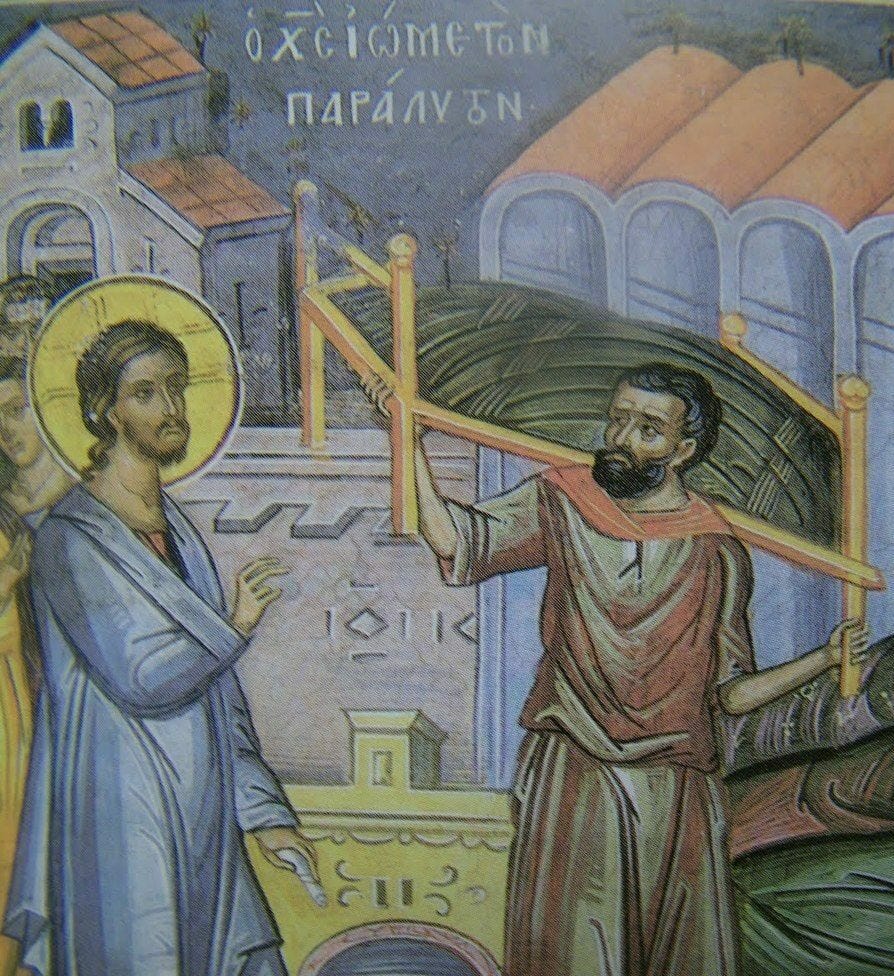Many Christians today might wonder why there no longer seem to be such miracles as were performed by Christ during the years of His earthly ministry — or even such as were performed by the holy apostles, or the prophets of old. Many Christians today might wonder why God appears to have withdrawn from the world, no longer working such “signs and wonders” (cf. John 4:48) as fill the pages of Holy Scripture from beginning to end. Many Christians today might even wish that they had lived during such former times, when they could have seen with their own eyes the “mighty works” (cf. Matt. 13:58) of God.
But, my brothers and sisters, if such thoughts are accepted even by us Orthodox Christians, then it is to our utmost shame and condemnation. For at this very moment we stand in the holy church, awaiting a miracle far greater than any which could have been conceived even by the prophets able to raise the dead — and this miracle is performed every single day throughout the entire world, even by such wholly unworthy sinners as myself. Truly, I do not think it too bold to say that this miracle of Holy Communion dwarfs even the miracle of the creation of the world itself.
And yet our spiritual blindness so often prevents us from seeing the magnitude of the grace we have been given. The scribes in today’s Gospel reading thought that Christ blasphemed when He dared grant the paralytic the forgiveness of his sins — but we ourselves simply take it for granted when we receive such forgiveness, week after week after week.
I am reminded of a story I once heard about an abbot here in America. One night he was on the subway in New York, traveling back to his monastery from some business in the city. Seeing him in his monastic attire, a homeless man came up to him and began to question him about his faith. The abbot, in the course of answering the man’s questions, began to speak about the mystery of Holy Communion. The pauper then interrupted him: “Wait a minute, you’re trying to tell me you believe that Jesus Christ is physically present with you in your churches?” The abbot, of course, answered that he did believe this, that even outside of the Divine Liturgy the reserved Holy Gifts are always present on the altar table, and that for this reason Orthodox Christians cross themselves whenever they pass by a church. “There is no way that you really believe that,” the man replied firmly, much to the surprise of the abbot. “And I’ll tell you how I know that you don’t: if I believed that Jesus Christ was physically present in the church where I was praying, I would never leave.”
My brothers and sisters, there are signs and wonders and mighty works of God performed all around us every day. The Lord Jesus Christ has vouchsafed unto our keeping even the “things the angels desire to look into” (1 Pet. 1:12). If God wills to perform lesser miracles — such as the healing of the paralytic in today’s Gospel passage — then it is only in order to open our eyes to the greater miracle of the forgiveness of our sins and our mystical union with God Himself. And if He does not will to perform such lesser miracles, then it is likewise only in order to open our eyes to the greater miracles — for very often the doors to earthly things must remain closed in order for us to become capable of seeing that the doors to Heaven have been thrust open wide.
So let us pray above all that God will heal our spiritual paralysis and make us capable of walking through these doors to Heaven, opened for us by the supreme sacrifice which He made for us on the Cross. And let us pray that He will fill our hearts to overflowing with both longing and gratitude for the great and holy gifts which He has miraculously given unto us, for truly “eye hath not seen, nor ear heard, neither have entered into the heart of man, the things which God hath prepared for them that love Him. But God hath revealed them unto us by His Spirit” (1 Cor. 2:9-10). Amen.




